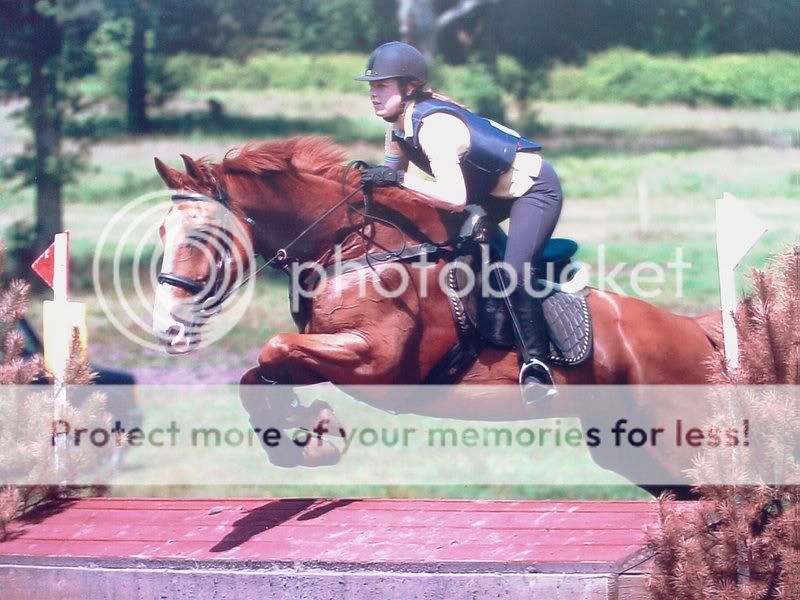My horse has been in the hospital since yesterday for investigation into intermittant lameness that she has had for about 4 weeks. I have just had the phonecall to say that she has navicular syndrome and it is the worst case that this vet has seen since she qualified in 1999, she asked for the xrays to be repeated because she could not believe how bad it was. One of her navicular bones has got an absess in it as it is so bad and both fore feet are affected.
The plan was that she comes back today and we take her back on Weds to have some treatment via a drip (which may cause colic) so she has to stay in for the day, a steroid injection into the pedal bone and she would also have some remedial shoes put on. The vet thinks that it will be very unlikely to get her sound to do the things we did which was SJ/XC schooling/hacking and at best she may be able to hack in walk!. She is only 8yrs old and a fiery chestnut mare warmblood so there is questions as to whether she would cope with not doing anything.
The vet thinks that she has been coping with the pain as it is so advanced and she was not lame until 4 wks ago. I cannot stop crying, I was supposed to be going into work this afternoon and collecting her after but cancelled work and am going to try and see the vet this afternoon to discuss and see the dreaded xrays. any personal experiances would be gratefully received.
She is kept at a DIY livery and has been getting increasingly agitated when she has not been doing anything and other horses go hacking by.
The other option would be cutting the nerve but the vet does not seem keen on that.
She has turnout from 8am till 5.30pm.
The plan was that she comes back today and we take her back on Weds to have some treatment via a drip (which may cause colic) so she has to stay in for the day, a steroid injection into the pedal bone and she would also have some remedial shoes put on. The vet thinks that it will be very unlikely to get her sound to do the things we did which was SJ/XC schooling/hacking and at best she may be able to hack in walk!. She is only 8yrs old and a fiery chestnut mare warmblood so there is questions as to whether she would cope with not doing anything.
The vet thinks that she has been coping with the pain as it is so advanced and she was not lame until 4 wks ago. I cannot stop crying, I was supposed to be going into work this afternoon and collecting her after but cancelled work and am going to try and see the vet this afternoon to discuss and see the dreaded xrays. any personal experiances would be gratefully received.
She is kept at a DIY livery and has been getting increasingly agitated when she has not been doing anything and other horses go hacking by.
The other option would be cutting the nerve but the vet does not seem keen on that.
She has turnout from 8am till 5.30pm.


